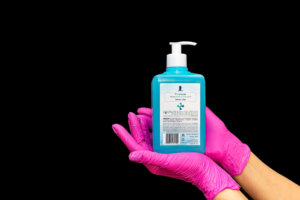Are you a nursing student or recent graduate preparing to take the National Council Licensure Examination (NCLEX)? It’s important to understand the duration and relevance of the certification you’ll receive upon passing this exam.
The NCLEX is a standardized test that all nursing graduates must pass to obtain licensure to practice as a registered nurse or licensed practical nurse.
The NCLEX certification is valid for a certain amount of time before it expires, and it’s important to renew it before it does.
Additionally, keeping up with current nursing practices is essential to maintaining your certification and staying in compliance with state regulations.
In this article, we’ll explore the duration and expiration of the NCLEX certification, the importance of renewing it, and how to stay up to date with nursing practices to ensure your certification remains valid.
Key Takeaways
- NCLEX certification is valid for a certain amount of time before it expires, and renewal of the certification is necessary to continue practicing as a nurse.
- Renewal requirements can vary by state and may include continuing education, professional development, and fees.
- Continuing education is an essential component of renewing the NCLEX certification, and failing to complete the necessary CE credits can result in the suspension or revocation of the nursing license.
- Each state has its own requirements for licensure, which can include education, experience, and background checks, and NCLEX exam validity varies across states.
Overview of the NCLEX Exam and Certification
You’re probably wondering what the NCLEX exam and certification actually entail, so let’s dive into it!
The NCLEX exam is a standardized test that nurses must pass in order to obtain their license to practice nursing. The exam is designed to test a nurse’s knowledge and understanding of the various concepts and skills required to be a competent nurse.
The NCLEX exam content is divided into four main categories: Safe and Effective Care Environment, Health Promotion and Maintenance, Psychosocial Integrity, and Physiological Integrity.
To prepare for the NCLEX exam, it’s important to have a solid understanding of the content that will be covered. Test taking strategies are also crucial in order to maximize your chances of passing the exam. These strategies include time management, practicing with sample questions, and understanding how to read and answer different types of questions.
With the right preparation and strategies, you can feel confident and ready to pass the NCLEX exam and obtain your nursing license.
Duration and Expiration of the NCLEX Certification
The period of time in which one can practice as a nurse after passing the NCLEX varies depending on the state in which they are licensed. However, the certification usually lasts for two years from the date of passing the exam.
After this period, you’ll need to go through the renewing process to continue practicing as a nurse. To renew your NCLEX certification, you’ll need to meet certain recertification requirements. These requirements vary by state, but most involve completing a certain number of continuing education hours or completing a specified amount of nursing practice within a certain timeframe.
It’s important to keep track of your recertification requirements and make sure you complete them on time to avoid any lapses in your certification and ability to practice as a nurse.
Importance of Renewing NCLEX Certification
Renewing your license as a nurse is crucial to maintaining your knowledge and skills, ensuring that you’re equipped to provide the best possible care to your patients.
The NCLEX certification is valid for two years, after which you must renew it to continue practicing as a licensed nurse.
Renewing your certification involves completing continuing education courses and meeting other requirements set by the state board of nursing.
Continuing education is an essential component of renewing your NCLEX certification. It allows you to stay up-to-date with the latest advancements in nursing and healthcare, which ultimately benefits your patients.
By staying current with the latest research and best practices, you can provide the best possible care to your patients and improve outcomes.
Additionally, renewing your certification on time ensures that you can continue practicing without any interruptions, protecting your career and ensuring that you can continue to provide for yourself and your family.
Keeping Up with Current Nursing Practices
As a nurse, it’s essential to keep up with current nursing practices. This involves meeting continuing education requirements, which are designed to ensure that you’re staying up-to-date with the latest developments in the field.
Additionally, there are numerous professional development opportunities available to nurses. These include conferences, workshops, and online courses, which can help you expand your knowledge and skills.
By taking advantage of these resources, you can provide the best possible care for your patients. So, make sure you’re keeping up with current nursing practices, and always strive to improve your skills and knowledge.
Continuing Education Requirements
You’ll need to complete continuing education requirements to keep your nursing license valid and up-to-date. Continuing education benefits you by allowing you to stay current with the latest advancements in healthcare practices, which in turn improves the quality of care you provide to your patients.
CE providers offer various courses in different formats, including online classes, conferences, workshops, and webinars. You can choose the type of course that best fits your learning style and schedule.
CE requirements vary by state and nursing specialty, so it’s essential to know the specific requirements for your license. You can find this information on your state board of nursing website or by contacting your state board directly.
It’s also important to keep track of your CE credits and ensure you meet the minimum requirements before your license renewal deadline. Failing to complete the necessary CE credits can result in the suspension or revocation of your nursing license.
Professional Development Opportunities
Looking for ways to enhance your nursing skills and knowledge? Check out the professional development opportunities available in your field!
Continuing education is not just about meeting the requirements for maintaining your nursing license, it’s also about career advancement and skill enhancement. By taking advantage of professional development opportunities, you can expand your knowledge, gain new skills, and stay up-to-date with the latest trends and best practices in nursing.
There are a variety of professional development opportunities available to nurses, including conferences, workshops, webinars, and online courses. These opportunities can cover a wide range of topics, from clinical skills and patient care to leadership and management.
By participating in professional development, you can not only improve your own skills and knowledge, but also contribute to the overall growth and development of the nursing profession. So why not take the next step in your nursing career and explore the professional development opportunities available to you?
NCLEX Exam Validity Across Different States
The NCLEX exam’s validity varies across states, making it crucial to understand the differences. Each state has its own requirements for licensure, and while some states have reciprocity agreements with others, not all do. Here are three things to keep in mind when considering NCLEX exam validity across different states:
-
Reciprocity agreements: Some states have agreements that allow nurses who are licensed in one state to practice in another state without retaking the NCLEX exam. However, it’s important to note that not all states have reciprocity agreements, and even those that do may have specific requirements that must be met before a license can be granted.
-
State-specific requirements: Each state has its own set of requirements for licensure, which can include education, experience, and background checks. Before taking the NCLEX exam, it’s important to research the requirements for the state where you plan to practice.
-
Renewal requirements: Even after passing the NCLEX exam and obtaining a license, nurses must meet renewal requirements to maintain their license. These requirements can vary by state and may include continuing education, professional development, and fees. It’s important to stay up-to-date on renewal requirements to ensure that your license remains valid.
Frequently Asked Questions
What is the pass rate for the NCLEX exam?
So, you wanna know about the NCLEX exam pass rate and some tips for preparing for it?
Well, the NCLEX pass rate varies depending on the type of program you’re in, but the national average for first-time test takers is around 85%.
However, don’t let that number scare you. With proper preparation, you can increase your chances of passing.
Some tips for NCLEX exam preparation include reviewing content regularly, practicing with NCLEX-style questions, and developing test-taking strategies.
It’s important to stay focused and confident during the exam, and remember that the NCLEX is designed to measure your ability to safely and effectively care for patients.
So keep that in mind, and good luck on your exam!
What is the cost of the NCLEX exam?
If you’re planning to take the NCLEX exam, you’ll need to pay an exam fee as part of the registration process. The cost varies depending on the type of exam you’re taking and the state where you plan to practice.
For example, as of 2021, the fee for the NCLEX-RN exam is $200 in most states, while the NCLEX-PN exam costs $150. You’ll need to pay this fee when you register for the exam, and you may also need to pay additional fees for things like rescheduling or changing your testing location.
Be sure to check the specific requirements and fees for your state so you know what to expect.
How many times can you take the NCLEX exam?
You can take the NCLEX exam up to 8 times a year, with a minimum wait time of 45 days between attempts. However, each state has its own retaking limits and policies, so it’s important to check with your state board of nursing for specific guidelines.
To increase your chances of passing, it’s important to develop effective preparation strategies. This includes studying regularly, taking practice tests, and seeking guidance from experienced nurses or review courses.
By taking the time to adequately prepare and knowing your state’s retaking limits, you can give yourself the best chance of passing the NCLEX exam and obtaining your nursing certification.
Is it possible to transfer NCLEX certification from one state to another?
Yes, it’s possible to transfer your NCLEX certification from one state to another. However, each state has its own set of requirements that you must meet before you can practice as a registered nurse.
You’ll need to research the specific state requirements and submit an application for licensure in the new state. The process may involve taking additional classes or exams, depending on the state’s regulations.
It’s important to note that the validity of your certification doesn’t change when you transfer it to a new state. Your certification will remain valid for the same duration as it would have in the original state.
How long does it take to receive NCLEX exam results?
So, you’re probably wondering about the waiting period for NCLEX exam results. Well, it typically takes about 6 weeks to receive your results.
However, some states may have different requirements and timelines for receiving results.
If you don’t pass the exam, don’t worry, you can retake it after a waiting period of 45 days.
And if you’re concerned about your score, you can request a rescore for an additional fee.
But keep in mind that each state has specific requirements for taking and passing the NCLEX exam, so it’s important to do your research before scheduling your exam.
Conclusion
Congratulations! You’ve completed the NCLEX exam and obtained your nursing license. However, it’s important to understand the duration and relevance of your certification.
Your certification is valid for a certain period of time, which varies depending on the state you’re practicing in. It’s important to keep track of your certification expiration date and renew it in a timely manner to avoid any interruption in your nursing practice.
Renewing your NCLEX certification is not just a formality, but it’s also essential to keep up with current nursing practices. The healthcare industry is constantly evolving, and it’s crucial to stay updated with the latest information and techniques.
By renewing your certification, you demonstrate your commitment to providing the best care possible to your patients. So, make sure to stay informed and keep your certification up-to-date to continue providing excellent nursing care.
































































































































